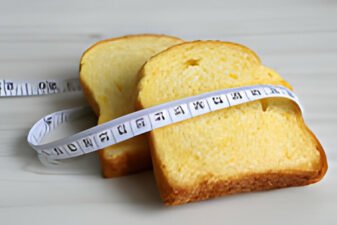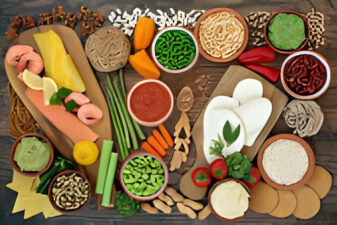As we have seen, the human body is fuelled by glucose. Therefore all foods must be converted into glucose before they can be used as fuel. Carbohydrates are more easily converted into glucose than protein or fat, and are considered to be the body’s “preferred” source of energy, and the brain’s essential source of energy.
Simple Carbohydrate
Simple carbs (excepting fruit sugar) are more easily converted into glucose because their molecular structure breaks down faster in the stomach and small intestine. Therefore these carbs raise glucose levels in the bloodstream quite rapidly (less than 30 minutes). This explains why diabetics, who occasionally suffer from an excessively low blood-glucose level, can quickly restore their balance by eating simple carb-foods, like sweets.
Complex Carbohydrate
Complex carbs, like starches, take longer to be converted into glucose because their molecular structure is much more complicated and usually (not always) requires quite a bit more time to metabolize into glucose (up to 2 hours).
Fiber is Undigested and Affects Digestion of Other Carbohydrate
Very complex carbs (dietary fiber) also have a very complicated molecular structure, and also are resistant to most digestive enzymes produced by the human body. As a result, they cannot be broken down into glucose or other nutrients at all. This is why fiber transits the intestinal tract largely undigested. This has a knock-on effect on the speed of digestion of other carbs around them. For example, where certain starches are “protected” by indigestible fibrous wrapping, the enzymes cannot get to grips with the starch as fast as normal. Also, the presence of soluble fiber in the stomach and intestine typically creates a viscous mass of digesting-food in which carbs and enzymes take longer to mix. Result? Carb digestion slows down.
Use the Glycemic Index
For a quick and convenient way to find out how fast your blood-glucose levels rise after you eat different carbohydrate-containing foods, use the Glycemic Index (GI). This index classifies foods into high, intermediate or low GI foods, according to how fast their carbohydrate is converted into glucose and thus how quickly the particular food raises our blood-glucose levels. As we shall see, glycemic value is an important factor in determining insulin levels and sensitivity.










